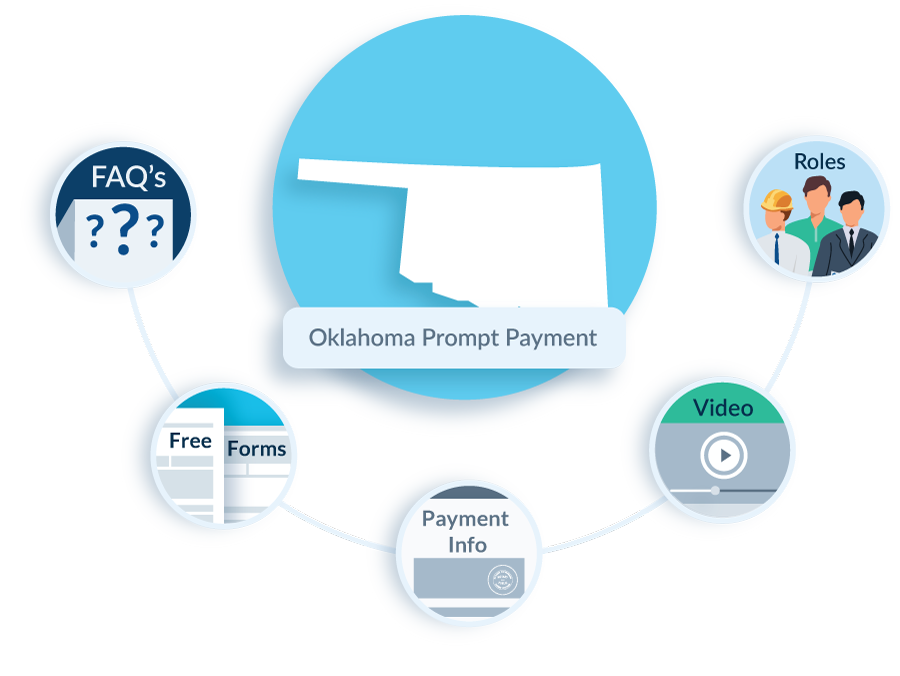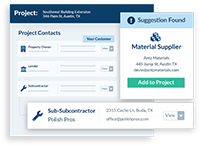Oklahoma Prompt Payment Requirements
- Private Jobs
- Public Jobs
- Top Links
Prime Contractors
For Prime (General) Contractors, progress payment must be made within 28 calendar days of billing. Can be modified by contract.
Subcontractors
For Subcontractors, payment due within 10 days of billing. Can be modified by contract.
Suppliers
For Suppliers, payment due within 10 days of billing. Can be modified by contract.
Interest & Fees
Not specified in state statutes
Prime Contractors
For Prime (General) Contractors, progress payments due within 30 days of invoice.
Subcontractors
For Subcontractors, payments due within 10 days of receipt of payment from above.
Suppliers
For Suppliers, payments due within 10 days of receipt of payment from above.
Interest & Fees
Interest for prime at statutory rate; for subs at 1.5% month
Prompt payment laws are a set of rules that regulate the acceptable amount of time in which payments must be made to contractors and subs. This is to ensure that everyone on a construction project is paid in a timely fashion. These statutes provide a framework for the timing of payments to ensure cash flow and working capital.
Projects Covered by Prompt Payment in Oklahoma
The Oklahoma prompt payment provisions are split into two sections, covering both private and public projects. These statutes govern the timing of all payments on construction projects, and impose penalties for late payment in the form of interest.
Private Projects
Oklahoma’s prompt payment laws that regulate payments on private construction projects within the state can be found in the Okla. Stat. Title 15, §820. This applies to all private projects except contracts for construction of low-rise residential dwellings or low-income housing projects.
Deadlines for Payment on Private Projects
All payments on an Oklahoma private project will be determined by the contract terms. However, if the contract is silent, then the prompt pay deadlines are enforced. Payments from the property owner to the prime are due within 28 calendar days after receipt of a request for payment. As for payments to subcontractors and suppliers down the payment chain, payments must be made within 10 days of the higher-tiered party receiving payment.
Penalties for Late Payment for Private Projects
The statute doesn’t provide for any interest penalties for late payment.
Public Projects
Payments on public works projects in Oklahoma are regulated by Okla. Stat. Title 61, §§221-227. These rules do not apply to public construction contracts regarding highways, railroads, turnpikes, or any project under $25,000.
Deadlines for Payment on Public Projects
Payments to the prime contractor from the public entity are due within 30 days of receipt of a proper request for payment. Upon receipt of payment from the public entity, the prime is required to pay their subcontractors and material suppliers within 10 days. All other payments down the payment chain must be made within 7 days of receipt of payment from the higher-tiered party.
Penalties for Late Payment on Public Projects
If payment is either late or wrongfully withheld, the unpaid balance will be subject to interest penalties. For late payments to the prime contractor, the interest will accrue at a rate equal to the interest rate for the deposit of state funds set by the OK State Treasurer. And for late payments to subcontractors and suppliers, the interest rate will be 1.5% per month.




